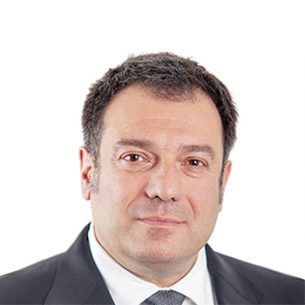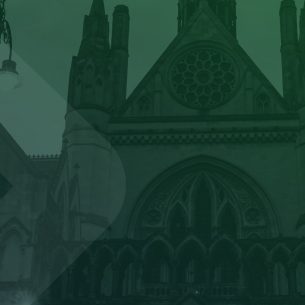Partner Bambos Tsiattalou discusses UWOs and The Court of Appeal’s rejection of an appeal by Mrs Zamira Hajiyeva.
Bambos’ article was published in Law360, 27 March 2020, and can be found here.
In a unanimous judgment, three Court of Appeal judges recently rejected an appeal by Mrs Zamira Hajiyeva, who had been subject to the first two unexplained wealth orders (UWOs). She is the wife of jailed banker Jahangir Hajiyev, who had been chair of the International Bank of Azerbaijan from 2001 until 2015 and was later jailed for 15 years by a Baku court for embezzlement and fraud.
The National Crime Agency (NCA) alleges that stolen funds were used to acquire a five-bedroom property in Knightsbridge, Mrs Hajiyeva’s home, which had been bought for £11.5m in 2009 by Vicksburg Global Inc., a British Virgin Islands (BVI) company. Also subject to an UWO was a £10.5m Berkshire golf course which she owned.
For the media and the public who were seduced by tales of her much publicised and extravagant spending and by the UWOs brought against her, this will be a vindication. She must now reveal how she became wealthy enough to buy a mansion near Harrods and a Berkshire golf course. If she cannot provide proof of income, she faces losing both properties.
So, what are UWOs? One of the most significant criminal fraud statutes for many years, The Criminal Finances Act 2017, introduced them as a new weapon in the fight against crime. Media interest was high when the powers of these new orders became effective in January 2018, serving to focus public attention on what was widely perceived to be huge, illicit wealth hidden away in some of Britain’s most expensive properties.
Under the new law, nicknamed McMafia laws after the BBC crime drama, UWOs were proclaimed by politicians and journalists alike as a way of stopping dirty money coming into the country. There was much hyperbole about how they would help rid the UK of the enormous sums derived from corruption that had been invested in the London property market. In the wake of the Novichok poisonings in Salisbury, Boris Johnson even went so far as to suggest that UWOs could be used to target wealthy Russian oligarchs with properties in London.
In 2019, the National Crime Agency said it was considering using unexplained wealth orders in hundreds of cases. Yet despite such dramatic promises, and significant media interest, there have only been a handful of UWOs granted so far. UWOs are currently only available to the National Crime Agency, HMRC, the Financial Conduct Authority, the Serious Fraud Office and the Crown Prosecution Service. It is possible that their availability will be extended to other agencies in the future, and that their use will increase over time. However, for now, the hype surrounding UWOs does not appear to match the more prosaic reality on the ground.
To explain what UWOs do, the following definition appears on the GOV.UK website: ‘A UWO requires a person who is reasonably suspected of involvement in, or of being connected to a person involved in, serious crime to explain the nature and extent of their interest in particular property, and to explain how the property was obtained, where there are reasonable grounds to suspect that the respondent’s known lawfully obtained income would be insufficient to allow the respondent to obtain the property.’
In addition, UWOs can also be applied to politicians or officials from outside the European Economic Area (EEA), or those who are associated with them i.e. Politically Exposed Persons (PEPs). Notably, a UWO that is granted in relation to a non-EEA PEP does not require suspicion of serious criminality.
However, their importance is more symbolic than pragmatic: the UK financial sector has already implemented strict anti-money laundering (AML) checks since the Proceeds of Crime Act came into force, meaning that dirty money is now used much less frequently to buy UK-based assets. Meanwhile, the proceeds of organised crime and kleptocracy have shifted elsewhere.
Results have been slow in coming from the agencies empowered to apply for UWOs. Using UWOs to seize someone’s assets when they fail to explain their source of wealth requires a lengthy and complex process. During the initial months of their operation, only one UWO was issued, but when they became public, the details did not disappoint.
The High Court granted the first two UWOs in February 2018 in a private hearing. Nine months later, the Court of Appeal lifted the veil of secrecy surrounding them, allowing publication of the details: both UWOs related to Mrs Hajiyeva. The story received significant media coverage, not least because of her extravagant spending between 2006 and 2016. A BBC headline captured the essence of it: ‘Zamira Hajiyeva: How the wife of a jailed banker spent £16m in Harrods.’ The story catalogued her spending: Boucheron jewellery: £3.5m; Cartier jewellery: £1.4m; and the Harrods perfume counters: £160,000.
In December 2019, Hajiyeva tried to overturn the UWOs that would force her to reveal the source of her £22m fortune. Referring to the Court of Appeal hearing, the FT headlined their story: ‘Banker’s wife fights back against unexplained wealth orders’. The Court was told by Jonathan Hall QC, representing the NCA, that her London home was probably bought through a BVI company “to keep the identity and provenance of the monies hidden” and in a manner that had the “hallmarks of money laundering”.
Mrs Hajiyeva’s barrister, James Lewis QC, argued that the NCA’s orders were based on her husband’s conviction in Baku, which he labelled a “flagrant denial of justice”. In documents filed with the court, he criticised the “gross unfairness of the criminal proceedings” against Mr Hajiyev, which he said formed the “necessary keystone” of the NCA’s order.
Mrs Hajiyeva also rejected the suggestion that her husband was a PEP because of his previous position at International Bank of Azerbaijan, which would make him more liable to bribes. Lewis said it was a “mischaracterisation” to label Mr Hajiyev as a “central banker”, as the NCA had done. “The reality is that her husband was the chairman of Azerbaijan’s largest bank,” said Lewis, adding that he was “no more a central banker than Sir Howard Davis”, chairman of the Royal Bank of Scotland.
Representing the NCA, Jonathan Hall QC countered by saying that Mr Hajiyev’s conviction was one of many reasons why the agency had suspicions about the family’s wealth, not least that Mr Hajiyev’s income records were “difficult to reconcile with a property purchase of £11.5m” which had been handled in “an unusual, complex and secretive manner”. Mr Hajiyev, Hall added, was “plainly attempting – as is sadly the case with so much London property – to keep the identity and provenance of the monies hidden”, adding it had “the hallmarks of money laundering which supported the NCA’s suspicions”.
Mrs Hajiyeva lost her case in the Court of Appeal and three further unrelated UWO cases are due to be heard soon. However, the overall importance of UWOs is still overplayed. The very small number of UWO cases that have been brought since they were first introduced two years ago points to the conclusion that, as a genuinely useful prosecution tool with widespread potential application, they would seem to have more style than substance.
Rather like Deferred Prosecution Agreements (DPAs) used by the SFO, of which only five have been agreed in six years – Standard Bank; XYZ Limited; Tesco; Rolls Royce; and Airbus – they allow the NCA to grandstand by parading a tiny handful of high profile UWOs. And just like DPAs, the number of UWOs is very small indeed. When unexplained wealth extends to numbers estimated to be in excess of 1000 people in the UK, the disproportionate focus given to one individual who has been subject to two UWOs distracts from the much wider problem of serious fraud, and unexplained wealth derived from it, that have regrettably become endemic in the UK.





